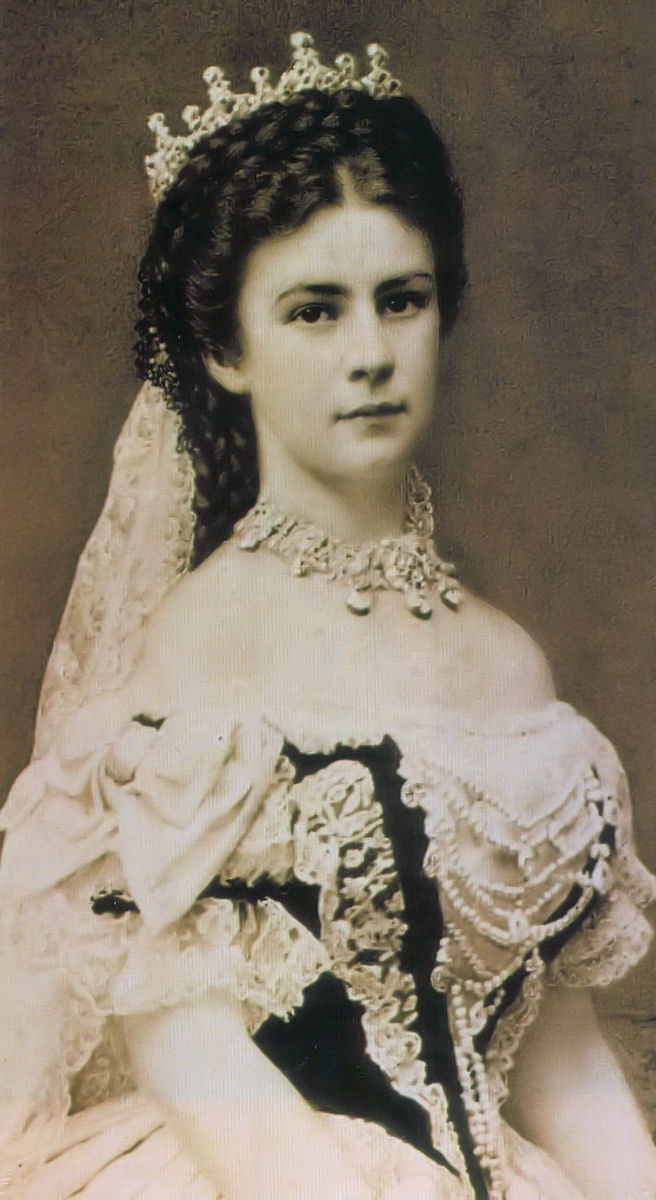In 1898 Mark Twain was vacationing in Europe, Austria specifically, and he wrote this:
I am living in the midst of world-history again. The Queen’s Jubilee last year, the invasion of the Reichsrath by the police, and now this murder, which will still be talked of and described and painted a thousand a thousand years from now.
Before you google that quote ask yourself “Do I know who Twain was talking about?” Have you read any histories of it? Have you seen paintings of it in any museums? This event, so pivotal, that Twain believed that it would be talked about and commemorated in the arts and culture for the next thousand years, is unknown to most people. So, who was he talking about?

He was talking about the Empress of the Austro-Hungarian Empire, Elisabeth, who was assassinated on September 10, 1898 in Geneva by Luigi Lucheni. Who, according to his own words, was an anarchist and was in Geneva for the sole purpose of:
I came to Geneva to kill a sovereign, with object of giving an example to those who suffer and those who do nothing to improve their social position; it did not matter to me who the sovereign was whom I should kill…It was not a woman I struck, but an Empress; it was a crown that I had in view.
This is what Mark Twain had to say about Luigi:
He is at the bottom of the human ladder, as the accepted estimates of degree and value go: a soiled and patched young loafer, without gifts, without talents, without education, without morals, without character, without any born charm or any acquired one that wins or beguiles or attracts; without a single grace of mind or heart or hand that any tramp or prostitute could envy him; an unfaithful private in the ranks, an incompetent stone- cutter, an inefficient lackey; in a word, a mangy, offensive, empty, unwashed, vulgar, gross, mephitic, timid, sneaking, human polecat. And it was within the privileges and powers of this sarcasm upon the human race to reach up–up–up–and strike from its far summit in the social skies the world’s accepted ideal of Glory and Might and Splendor and Sacredness…
One of the commonest forms of madness is the desire to be noticed, the pleasure derived from being noticed. Perhaps it is not merely common, but universal. In its mildest form it doubtless is universal. Every child is pleased at being noticed; many intolerable children put in their whole time in distressing and idiotic effort to attract the attention of visitors; boys are always “showing off”; apparently all men and women are glad and grateful when they find that they have done a thing which has lifted them for a moment out of obscurity and caused wondering talk. This common madness can develop, by nurture, into a hunger for notoriety in one, for fame in another. It is this madness for being noticed and talked about which has invented kingship and the thousand other dignities, and tricked them out with pretty and showy fineries; it has made kings pick one another’s pockets, scramble for one another’s crowns and estates, slaughter one another’s subjects; it has raised up prize-fighters, and poets, and villages mayors, and little and big politicians, and big and little charity-founders, and bicycle champions, and banditti chiefs, and frontier desperadoes, and Napoleons. Anything to get notoriety; anything to set the village, or the township, or the city, or the State, or the nation, or the planet shouting, “Look–there he goes–that is the man!” And in five minutes’ time, at no cost of brain, or labor, or genius this mangy Italian tramp has beaten them all, transcended them all, outstripped them all, for in time their names will perish; but by the friendly help of the insane newspapers and courts and kings and historians, his is safe and live and thunder in the world all down the ages as long as human speech shall endure! Oh, if it were not so tragic how ludicrous it would be!
Except of course Twain was wrong. Luigi Lucheni and the Empress he killed are forgotten to all but historians, lovers of early modern Europe and collectors of trivia. An event that seemed so momentous at the time, one which as Twain correctly stated hadn’t been seen in Europe for over 2000 years, turns out to have been just a sign post on the way to much more tumultuous things. Events that would wash any significance that Empress Elisabeth’s murder might have had to those who witnessed it away. Events that would largely purge her memory from our collective consciousness…
Of course I’m sitting here just over 100 years later, my view of the assassination comes with the perfect clarity of hindsight and in light of all the events that followed it. Twain could not know that in the next 30 years much of the Europe he was familiar with would be washed away and in the next 70 much of the world he knew would also be remade. His comments serve as a reminder to us that we are all victims to the here and now. That our views on the importance of events is myopic and contingent on a future we cannot know until it is already past.
Trivia:
As far as I could find there are no works of art that portray the assassination of Empress Elisabeth.
Empress Elisabeth and Emperor Joseph’s son and heir, Rudolf, killed himself and his wife in January of 1889. The next in line was Joseph’s younger brother Archduke Carl Ludwig who renounced his succession rights days after Rudolf’s death. Ludwig’s son, Franz Ferdinand, became the heir presumptive to the thrones of Austria, Hungary, Croatia, and Bohemia. His assassination in 1914 precipitated the first World War.
Sources:
The Memorable Assassination by Mark Twain
The Assassination of Empress Elisabeth


